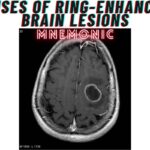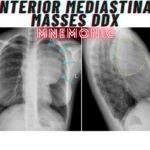In this article, we are sharing with our audience the genuine PDF download of Audit and Accounting Guide: Life and Health Insurance Entities 2018 PDF using direct links which can be found at the end of this blog post. To ensure user safety and faster downloads, we have uploaded this .pdf file to our online cloud repository so that you can enjoy a hassle-free downloading experience.
Here, at the Medicos Republic, we believe in quality and speed which are a part of our core philosophy and promise to our readers. We hope that you people benefit from our blog! 🙂 Now before we share the free PDF download of Audit and Accounting Guide: Life and Health Insurance Entities 2018 PDF with you, let’s take a look at a few of the important details regarding this ebook.
Overview
Here’s the complete overview of Audit and Accounting Guide: Life and Health Insurance Entities 2018 PDF:
This book helps simplify the complexities of insurance entity regulatory compliance. Whether performing audit engagements or management at an insurance entity, the 2018 edition of this guide is a must-have resource to keep abreast of recent regulatory changes related to the life and health insurance industry, its products and regulatory issues, and the related transaction cycles that an insurance entity is involved with.
New to the 2018 edition: This edition covers recent regulatory updates related to the Affordable Care Act and provides guidance for new standards that impact life and health insurance, including revenue recognition, financial instruments, leases, and more.
Features of Audit and Accounting Guide: Life and Health Insurance Entities 2018 PDF
Here’s a quick overview of the essential features of this book:
This guide was developed by the former Insurance Companies Committee and the Life Insurance Audit Guide Task Force. This edition of the guide has been modified by the AICPA staff to include certain changes necessary due to the issuance of authoritative guidance since the first edition and other revisions as deemed appropriate. Relevant guidance contained in standards issued through October 1, 2021 is included. This guide includes the following:
- Helpful information for developing audit plans of life insurance entities (especially auditing investments, inforce files, reinsurance, insurance revenues, liabilities for future policy benefits, income taxes and deferred acquisition costs)
- Appendixes that will help you understand industry-specific disclosures and credit losses.
- Implementation guidance for ASU No. 2018-12, Financial Services—Insurance (Topic 944) Targeted Improvements to the Accounting for Long-Duration Contracts. As additional accounting implementation papers are finalized, the online version will be updated. Please see the Insurance Expert Panel webpage for the status of the accounting implementation papers currently in development.
Table of Contents
Below is the complete table of contents offered inside Audit and Accounting Guide: Life and Health Insurance Entities 2018 PDF:
1 Overview of the Life and Health Insurance Industry 01-100
Introduction 01-03
Legal Forms of Organization 04
Size and Composition of the Industry 05-14
Stock Insurance Entities 07
Mutual Insurance Entities 08-12
Fraternal Benefit Societies 13
Assessment Entities 14
Operations and Distribution Systems 15-23
Operations 15-16
Distribution Systems 17-23
Major Lines of Business 24-33
Life Insurance Contracts 25-28
Accident and Health Insurance Contracts 29
Annuity Contracts 30
Investment Contracts 31
Fee-for-Service Contracts 32-33
Reinsurance 34-37
Regulation 38-68
National Association of Insurance Commissioners 47-50
Federal Regulations 51-68
Rating Agencies 69
Taxation 70-86
Federal Taxation 70-85
State Taxation 86
State Guaranty Funds 87-88
Industry Associations 89
International Considerations 90-95
Terrorism 96-100
2 Characteristics of Life and Health Insurance Products 01-52
Introduction 01
Classification of Insurance Contracts 02-07
Broad Lines of Business 02
Participating or Nonparticipating Classification 03
Group or Individual Classification 04-05
Accounting Classification 06-07
Types of Contracts 08-52
Life Insurance Contracts 08-30
Accident and Health Insurance Contracts 31-41
Annuity Contracts 42-45
Investment Contracts 46-51
Fee-for-Service Contracts 52
3 Sources of Accounting Principles and Reporting Requirements 01-67
Introduction 01-02
Statutory Accounting Principles 03-30
Permitted Statutory Accounting Practices 11-14
Statutory Reporting 15-20
Disclosure Issues 21-30
GAAP 31-37
Financial Statement Disclosures 31-35
Definition of Public Business Entity 36-37
Revenue Recognition 38
FASB ASC 820, Fair Value Measurement, and FASB ASC 825, Financial Instruments 39
Definition of Fair Value 40-41
Application to Nonfinancial Assets 42-45
Application to Liabilities and Instruments Classified in a Reporting Entity’s Shareholders’ Equity 46-51
The Fair Value Hierarchy 49-51
Fair Value Determination When the Volume or Level of Activity Has Significantly Decreased 52-60
Disclosures 55
Fair Value Option 56-58
Statutory Accounting 59-60
SEC Reporting Requirements 61-65
Tax Basis Accounting Requirements 66
Comparison of GAAP and Statutory Accounting Principles 67
4 General Audit Considerations 01-203
Introduction 01
Scope of the Audit Engagement 02-15
General Considerations 02-04
Integrated Audit of Financial Statements and Internal Control Over Financial Reporting 05-10
Additional PCAOB Audit Standards 11-15
Planning and Other Auditing Considerations 16-79
Audit Planning 17-18
Audit Risk 19-22
Risk Assessment Procedures 23-31
Understanding the Entity, Its Environment, and Its Internal Control 32-49
Common Industry Ratios and Performance Metrics 50-55
Risk Indicators in the Life and Health Insurance Industry 56-60
National Association of Insurance Commissioners Insurance Regulatory Information System 61-63
Identifying and Assessing the Risks of Material Misstatement 64-66
Performing Audit Procedures In Response to Assessed Risks 67-72
Analytical Procedures 73-77
Use of Assertions in Obtaining Audit Evidence 78-79
Other Risk Assessment Activities and Considerations 80-84
Planning Materiality 80-84
Consideration of Fraud in a Financial Statement Audit 85-108
Insurance Industry — Fraud Risk Factors 87-88
The Importance of Exercising Professional Skepticism 89
Discussion Among Engagement Personnel Regarding the Risks of Material Misstatement Due to Fraud 90-92
Obtaining the Information Needed to Identify the Risks of Material Misstatement Due to Fraud 93-94
Identifying Risks That May Result in a Material
Misstatement Due to Fraud 95-99
Assessing the Identified Risks After Taking Into Account an Evaluation of the Entity’s Programs and Controls That Address the Risks 100-101
Responding to the Results of the Assessment 102
Evaluating Audit Evidence 103
Responding to Misstatements That May Be the Result of Fraud 104-105
Communicating About Possible Fraud to Management, Those Charged With Governance, and Others 106-107
Documentation and Guidance 108
Use of Information Technology 109-112
Use of Service Organizations 113
Going Concern Considerations 114-122
Evaluating Misstatements 123-125
Audit Documentation 126-131
Accounting Estimates 132-149
Insurance Entities Use of Actuarial Specialists 133-135
Auditing Actuarially Determined Accounting Estimates 136-138
Auditor Use of Actuarial Specialists 139-140
Specialists Engaged by the Auditor 141-143
Use of Management Specialists by Auditors in Evaluating Actuarially Determined Estimates 144-146
Auditor’s Response to Management’s Use or Non-Use of an Actuarial Specialist 147
Evaluating the Reasonableness of the Estimates 148-149
Consideration of the Work of Internal Auditors 150-151
Communication of Matters Related to Internal Control 152-158
Identification of Deficiencies in Internal Control 153-154
Communication of Deficiencies in Internal Control 155-158
Communication of Other Matters With Those Charged With Governance 159-163
Matters to Be Communicated 161-163
Communications by Successor Auditors 164
Auditor Independence 165-166
Auditing Fair Value Measurements and Disclosures 167-169
Considerations for Auditors to Comply With the NAIC Model Audit Rule 170-188
Awareness 171
Change in Auditor 172
Auditor’s Letter of Qualifications 173
Qualifications of the Auditor 174
Indemnification 175
Partner Rotation 176
Prohibited Services 177-178
Consideration of Internal Control in a Financial Statement Audit 179
Notification of Adverse Financial Condition 180
Report on Internal Controls 181-183
Working Papers 184
Communications to Audit Committees 185
Management’s Report on Internal Controls Over Financial Reporting 186-188
Auditor’s Consideration of State Regulatory Examinations 189-193
Auditor’s Consideration of Permitted Statutory Accounting Practices 194-198
SEC Requirements for Management’s Report on Internal Control Over Financial Reporting 199-203
5 Auditing Inforce Files 01-19
Introduction 01-19
Control Objectives 07-09
Auditing Procedures 10-14
Confirmation of Insurance Contracts Inforce 15-18
Audit Consideration Chart 19
6 Insurance Revenues 01-52
Introduction 01
Regulation of Premium Rates 02
Taxation of Premiums 03
Accounting Practices 04-28
6 Insurance Revenues — continued Statutory Accounting Principles 06-11
Generally Accepted Accounting Principles 12-28
Auditing 29
Risk of Material Misstatement — Inherent Risk Factors 29
Obtaining an Understanding of Internal Control for
Premium Transactions 30-31
Control Environment 31
Risk Assessment Process 32-48
Control Activities 33-34
Information and Communication 35-48
Audit Procedures Responsive to the Assessed Risks of Material Misstatement 49-51
Audit Consideration Chart 52
7 Liabilities for Future Policy Benefits (Statutory Policy Reserves) and Other Contract Liabilities 01-147
Introduction 01-07
Regulation 08-14
Statement of Actuarial Opinion 13-14
Calculation Methods 15
Reserve Definitions 16-19
Retrospective and Prospective Methods 18-19
Accounting Practices 20
Statutory Accounting Principles 21-53
Calculation of Reserve Liabilities by Contract Type 33-52
Participating Policies 53
Generally Accepted Accounting Principles 54-109
Significant Actuarial Assumptions for Traditional
Life and Health Insurance Products 58-71
Calculation of Liabilities for Future Policy Benefits by Contract Type 72-96
Participating Contracts 97-109
Auditing 110
Risk of Material Misstatement — Inherent Risk Factors 110
Obtaining an Understanding of Internal Control for Auditing Liabilities for Future Policy Benefits and
Other Contract Liabilities 111-120
Control Environment 112
The Entity’s Risk Assessment Process 113-114
Control Activities 115-116
Information and Communication 117-120
Special Considerations 121-146
Auditing Statutory Reserve Adequacy 123-124
Auditing GAAP Benefit Liabilities — Reviewing Assumptions Used 125-146
Audit Consideration Chart 147
8 Benefit and Claim Payments 01-52
Introduction 01-23
Kinds of Benefit and Claim Payments 02-23
Regulation 24-25
Accounting Practices 26-30
Statutory Accounting Principles — Benefit and Claim Payments 27-29
Generally Accepted Accounting Principles — Benefit and Claim Payments 30
Auditing 31
Risk of Material Misstatement — Inherent Risk Factors 31
Obtaining an Understanding of Internal Control for Contract Benefit and Claim Transactions 32-51
Control Environment 33
The Entity’s Risk Assessment Process 34-35
Control Activities 36-37
Information and Communication 38-51
Audit Consideration Chart 52
9 Commissions, General Expenses, and Deferred Acquisition Costs 01-116
Introduction 01-04
Regulation 05
Accounting Practices 06-11
Statutory Accounting Principles 07-11
Generally Accepted Accounting Principles 12-97
Accounting for DAC in Connection With Contract Modifications or Exchanges 44-55
Sales Inducements to Contract Holders 56-61
Amortization of DAC 62-79
Calculation Methodologies 80-83
Recoverability Testing and Loss Recognition 84-92
Special Considerations 93-94
Auditing 95-96
Risk of Material Misstatement — Inherent Risk Factors 97
Obtaining an Understanding of Internal Control for Commissions, General Expenses, and Deferred Acquisition Costs 98-114
Control Environment 100
The Entity’s Risk Assessment Process 101-102
Control Activities 103-104
Information and Communication 105
Commissions and Allowances 106-111
General Expenses 112
DAC 113-114
Audit Consideration Chart 115-116
10 Investments 01-182
Introduction 01-03
Regulation 04-07
Accounting Practices 08
Security Investments 09-101
Debt Securities 09-27
Securities Lending Transactions 28-34
Repurchase Agreements and Wash Sales 35-45
Statutory Accounting 46
Equity Securities 47-71
Derivative Instruments 72-85
Short Sales 86
Interest Maintenance Reserve and Asset Valuation Reserve 87-92
Realized and Unrealized Gains and Losses on Debt and Equity Securities 93-101
Investments Other Than Securities 102-160
Mortgage Loans 102-124
Troubled Debt Restructurings 125-135
Real Estate Investments 136-145
Joint Ventures and Partnerships 146-156
Policy Loans 157-160
Investment Income Due and Accrued 161-163
Auditing 164-165
Debt and Equity Securities 164
Risk of Material Misstatement — Inherent Risk 165
Obtaining an Understanding of Internal Control for Investment Transactions 166-181
Control Environment 167
The Entity’s Risk Assessment Process 168-169
Control Activities 170-171
Information and Communication 172-180
Group Audit Considerations for Investments in Alternative Investments and Subsidiary, Controlled and Affiliated
Entities 181
Audit Consideration Chart 182
Audit and Accounting Guide: Life and Health Insurance Entities 2018 PDF Free Download
Alright, now in this part of the article, you will be able to access the free PDF download of Audit and Accounting Guide: Life and Health Insurance Entities 2018 PDF using our direct links mentioned at the end of this article. We have uploaded a genuine PDF ebook copy of this book to our online file repository so that you can enjoy a blazing-fast and safe downloading experience.
[adinserter block=”3″]
Here’s the cover image preview of Audit and Accounting Guide: Life and Health Insurance Entities 2018 PDF:
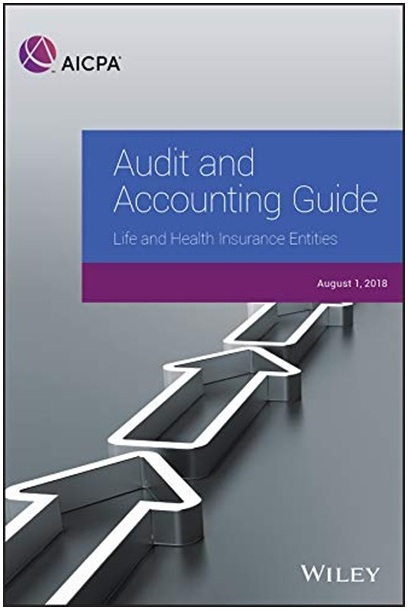
FILE SIZE: 33 MB
[adinserter block=”2″]
Please use the direct link mentioned below to download Audit and Accounting Guide: Life and Health Insurance Entities 2018 PDF for free now:
Download Link
Happy learning, people! 🙂

DMCA Disclaimer: This site complies with DMCA Digital Copyright Laws.
PLEASE NOTE: We do not host/store any copyrighted content on our website, it’s a catalog of links that are already found on the internet. Please check out our DMCA Policy. If you feel that we have violated your copyrights, please get in touch with us immediately, and the said content will be PERMANENTLY removed within 24 hours.
You may send an email to madxperts [at] gmail.com for all DMCA / Removal Requests or use our Contact Us page.
Check out our DMCA Policy.

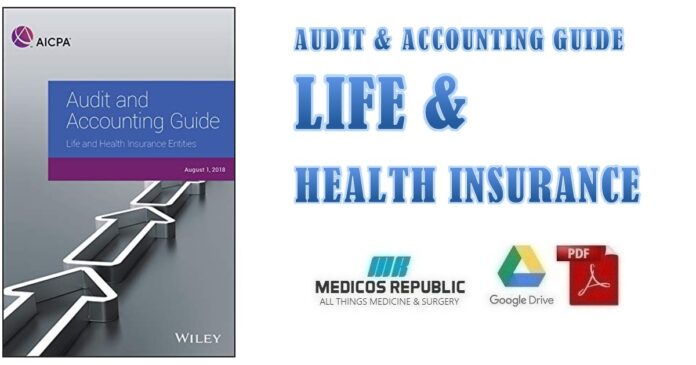
![Medicare For Dummies PDF Free Download [Direct Link] Medicare For Dummies PDF](https://www.medicosrepublic.com/wp-content/uploads/2023/02/Medicare-For-Dummies-PDF-Free-Download-1-218x150.jpg)
![Health Insurance for Dummies: Understanding Health Insurance and Methods of Staying Healthy while Keeping Fit At Home PDF Free Download [Direct Link]](https://www.medicosrepublic.com/wp-content/uploads/2023/02/Health-Insurance-for-Dummies-PDF-Free-Download-218x150.jpg)
![Navigating Health Insurance (Health Navigation) PDF Free Download [Direct Link]](https://www.medicosrepublic.com/wp-content/uploads/2023/02/Navigating-Health-Insurance-PDF-Free-Download-1-218x150.jpg)
![Understanding Health Insurance 13th Edition PDF Free Download [Direct Link] Understanding Health Insurance 13th Edition PDF](https://www.medicosrepublic.com/wp-content/uploads/2023/02/Understanding-Health-Insurance-13th-Edition-PDF-Free-Download-1-218x150.jpg)
![Health Care Finance and the Mechanics of Insurance and Reimbursement PDF Free Download [Direct Link]](https://www.medicosrepublic.com/wp-content/uploads/2023/02/Health-Care-Finance-and-the-Mechanics-of-Insurance-and-Reimbursement-PDF-Free-Download-218x150.jpg)
![Fordney’s Medical Insurance 15th Edition PDF Free Download [Direct Link]](https://www.medicosrepublic.com/wp-content/uploads/2023/02/Fordneys-Medical-Insurance-15th-Edition-PDF-Free-Download-218x150.jpg)

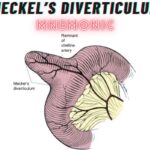
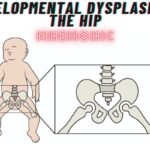



![Gerstmann Syndrome Features Mnemonic [Easy-to-remember] Gerstmann Syndrome Features Mnemonic](https://www.medicosrepublic.com/wp-content/uploads/2025/06/Gerstmann-Syndrome-Features-Mnemonic-150x150.jpg)
![Cerebellar Signs Mnemonic [Easy to remember] Cerebellar Signs Mnemonic](https://www.medicosrepublic.com/wp-content/uploads/2025/06/Cerebellar-Signs-Mnemonic-150x150.jpg)
![Seizure Features Mnemonic [Easy-to-remember] Seizure Features Mnemonic](https://www.medicosrepublic.com/wp-content/uploads/2025/06/Seizure-Features-Mnemonic-1-150x150.jpg)

![Recognizing end-of-life Mnemonic [Easy to remember]](https://www.medicosrepublic.com/wp-content/uploads/2025/06/Recognizing-end-of-life-Mnemonic-150x150.jpg)

![Multi-System Atrophy Mnemonic [Easy-to-remember] Multi-System Atrophy Mnemonic](https://www.medicosrepublic.com/wp-content/uploads/2025/06/Multi-System-Atrophy-Mnemonic-150x150.jpg)
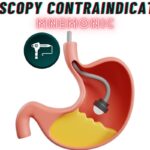
![How to Remember Southern, Northern, and Western Blot Tests [Mnemonic] How to Remember Southern, Northern, and Western Blot Tests](https://www.medicosrepublic.com/wp-content/uploads/2025/06/How-to-Remember-Southern-Northern-and-Western-Blot-Tests-150x150.jpg)



